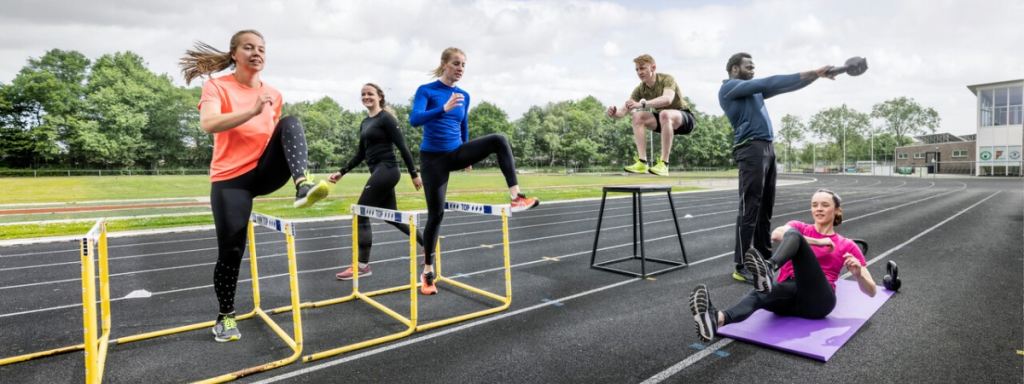About donating
Together, we help over 100,000 patients each year and contribute to a better quality of life for people. Our mission: “Together with the donor, for a better life for the patient.” Curious about what to expect when you become a donor? Discover everything about donating at Sanquin.

Four steps to becoming a donor
-
Register online (NL)
Fill in the online application form and find a location near you. -
Medical check
During a personal appointment, we check your blood values and discuss any questions or concerns you may have. -
Your first donation
Experience how simple and meaningful your donation is, under the guidance of our professionals. -
Being a donor
Your contribution literally saves lives, time and time again. Become a regular donor and make a lasting difference.
Donate and gain insight into your own health
Did you know that your donation not only saves lives, but also gives you something valuable in return? Each time you donate blood with us, we check your health and screen your blood. Your gift helps others, and we help you to stay healthy. Together we contribute to a stronger and healthier society!

Thanks to our donors
5.000 lives saved per week
Every week blood donations save thousands of lives in the Netherlands. This figure makes the direct impact very concrete and shows that donating really is life-changing.
200+ scientific studies per year on blood and health
With the support of our donors, we conduct hundreds of studies each year, from new treatments for blood diseases to groundbreaking cancer therapies.
1 blood donation can help up to 3 people
Blood consists of different parts, such as red blood cells, platelets, and plasma. Each part has its own specialised role in your body to keep you alive and healthy. For this reason, donated blood is usually divided into separate components called blood products. Each person receiving a transfusion gets only the part that they need. Just one donation can save more than one life!
Do you have a question?
We are here for you! Contact us by phone at 088-730 8686. Mon to Thurs 08:00 - 20:00 (Fri to 17:00).
Or find your answer here
Can I donate after receiving blood products or a transfusion?
If you have received a blood transfusion and/or blood products from someone else, the reason for the transfusion (illness, accident, chronic condition, etc.) determines whether you can become a donor.
What are blood products?
By blood products we mean components of the blood, such as red blood cells, platelets, plasma and serum eye drops. By blood products we do not mean plasma medicines that are prepared from human plasma, such as immunoglobulins, clotting factors and albumin.
If you have only received plasma medicines or your own blood (back), we do not consider this to be a blood transfusion.
Read more about donating blood after receiving a blood product or blood transfusion.
What should I bring to my first appointment?
- Always bring your ID (driver's license, ID or passport) to the blood bank. A copy or photo of it is not valid. Without a valid ID, you cannot be tested and you cannot donate.
- Are you taking medication? Then also bring a list of your medication.
Can I exercise before or after donating?
Light exercise (e.g. walking, cycling and yoga) before donating is not a problem, but make sure you drink extra well after exercising. Intensive exercise (e.g. football, running and cycling) before donating and exercise in general in the 12 hours after donating blood or plasma are not recommended. After a donation, you may experience dizziness or fainting during physical exertion.
Avoid exerting force with the arm that was punctured on the day of donation. The wound from the needle can reopen, which can cause post-bleeding or a (sometimes painful) bruise.
A blood donation can affect your athletic performance. Donating reduces your hemoglobin levels. Hemoglobin (Hb) is important for the transport of oxygen to your muscles, among other things. Many people do not notice a difference in their athletic performance after donating. The difference in exercise capacity may be noticeable if you practice top-level or endurance sports and are going to make a major effort (e.g. a marathon or competition). It is then wise not to donate blood in the month before. Your hemoglobin level needs a few weeks to return to its old level. Also in the first month after a major effort, such as a marathon or a four-day walk, your Hb level can be slightly lowered due to the effort and donating blood is not recommended.
Donating plasma could be a good alternative for your Hb level, because with a plasma donation you get back the red blood cells and therefore the Hb level hardly decreases with a plasma donation. But the above advice about fluid loss also applies to plasma donation.
Work for life
We combine medical, diagnostic and scientific expertise under one roof. In this way, we bring light into the darkness, with one goal: changing lives. Choose a job with real impact.
For professionals
With high-quality blood products, expert advice and in-depth knowledge, we support professionals in their work. From a rapid diagnosis to an effective therapy – together we work on the best care.
About our research
With new methods and applications we help prevent diseases, diagnose them faster and treat or cure them more effectively. Today we can find solutions that are essential for life tomorrow.